Address
304 North Cardinal
St. Dorchester Center, MA 02124
Work Hours
Monday to Friday: 7AM - 7PM
Weekend: 10AM - 5PM
Address
304 North Cardinal
St. Dorchester Center, MA 02124
Work Hours
Monday to Friday: 7AM - 7PM
Weekend: 10AM - 5PM

In today’s rapidly evolving kitchen appliance industry, the European market stands out as a beacon of opportunity for manufacturers. Navigating the complexities of certification, especially the UKCA mark, is crucial for entering this lucrative market. This article delves into the intricacies of the UKCA certification process, offering insights and real-world examples to guide you on the path to European success.
The UKCA (United Kingdom Conformity Assessment) certification is a vital marker for kitchen appliance manufacturers looking to tap into the European Union market. Understanding what this certification entails is crucial for ensuring compliance and opening doors to new business opportunities. Here’s a breakdown of the UKCA certification and its significance:
UKCA Certification Basics
The UKCA mark is a mandatory conformity assessment marking for products sold in the UK and the EU post-Brexit. It signifies that a product meets all relevant EU regulations and standards, ensuring safety, health, and environmental protection. This certification is similar to the CE mark, which was previously used in the EU, but with distinct requirements for UK manufacturers and importers.
Relevance for Kitchen Appliances
For the kitchen appliance industry, the UKCA certification is particularly important as it covers a wide range of products, including ovens, hobs, dishwashers, refrigerators, and more. Compliance with these standards is not only a legal requirement but also a trust signal to consumers that the product meets the highest safety and quality standards.
The Transition from CE to UKCA
Manufacturers who previously used the CE mark for their products in the EU now need to obtain UKCA certification. This transition requires a thorough understanding of the differences between the two marks and the additional compliance steps necessary for the UKCA.
Key Differences Between CE and UKCA
While the CE mark was a symbol of compliance with the EU’s New Approach Directives, the UKCA mark has its own set of regulations and conformity assessment procedures. Key differences include the removal of the UK’s Notified Body involvement for UKCA certification and the inclusion of additional UK-specific requirements.
Conformity Assessment Procedures
UKCA certification involves a series of conformity assessment procedures that can vary depending on the product type. These procedures include the evaluation of technical documentation, product testing, and compliance with relevant EU regulations. For kitchen appliances, this often involves assessing electrical safety, energy efficiency, and material safety.
The Role of Notified Bodies
Under the CE mark, manufacturers relied on Notified Bodies to conduct conformity assessments and issue the CE mark. With UKCA, manufacturers can use UK Notified Bodies for certain assessments, but there is also the option to use EU Notified Bodies for specific product types, which can streamline the certification process.
Navigating the Certification Process
Navigating the UKCA certification process can be complex. It involves identifying the applicable EU regulations, ensuring product design and manufacturing meet these standards, and preparing comprehensive technical documentation. This process requires a deep understanding of both UK and EU regulations.
Benefits of UKCA Certification
Once obtained, UKCA certification offers several benefits. It provides a clear indication to consumers and retailers that the product is compliant with UK and EU regulations, which can boost consumer confidence and marketability. It also allows manufacturers to access both the UK and the EU markets without the need for additional certification in each country.
Challenges and Considerations
Despite the benefits, there are challenges to consider. The certification process can be time-consuming and expensive, especially for manufacturers with a range of products. Additionally, staying updated with the evolving UK and EU regulations is crucial to maintain compliance.
Conclusion
Understanding the UKCA certification is a critical step for kitchen appliance manufacturers aiming to enter or remain in the European market. It’s a multifaceted process that requires careful planning, adherence to specific standards, and ongoing compliance management. By investing in UKCA certification, manufacturers can ensure their products meet the necessary requirements, build consumer trust, and unlock the full potential of the European market.

The allure of the European Union (EU) market is undeniable for kitchen appliance manufacturers. This vast and diverse region presents a myriad of opportunities, and understanding the importance of EU market access is crucial for any business looking to expand its global footprint. Here’s why the EU market holds such significance:
The EU Market’s Economic Powerhouse StatusThe EU is the largest single market in the world, with a population of over 450 million consumers. This economic powerhouse offers a lucrative market for businesses, including those in the kitchen appliance sector. The sheer size of the market means that even a small percentage of sales can translate into substantial revenue.
Diverse Consumer PreferencesThe EU is a melting pot of cultures, each with its own unique preferences and needs. This diversity creates a rich tapestry of consumer demands, from high-end, smart appliances in urban areas to more traditional, energy-efficient models in rural regions. Adapting to these varied preferences can lead to a competitive edge and a wider customer base.
Strategic Location for Global DistributionThe strategic geographic position of the EU makes it an ideal hub for distribution to other European countries and beyond. Being closer to key markets in Asia, Africa, and the Middle East, the EU offers a gateway for companies to expand their reach and establish a strong presence in these regions.
Regulatory HarmonizationThe EU has a harmonized regulatory framework that simplifies market entry for compliant products. This means that once a kitchen appliance has been certified to meet EU standards, it can be sold across all member states without the need for additional certifications. This streamlines the process and reduces costs for manufacturers.
Brand Reputation and Consumer TrustThe EU has a reputation for quality and innovation, which can enhance the brand image of kitchen appliance manufacturers. Consumers in the EU are often willing to pay a premium for products that meet stringent safety and quality standards, which can lead to higher profit margins and increased brand loyalty.
Long-Term Market StabilityThe EU offers a stable market environment with a relatively low risk of economic fluctuations. This stability is particularly appealing for companies looking to invest in long-term growth strategies and establish sustainable operations in the region.
Competitive Landscape and InnovationThe EU market is highly competitive, which drives innovation and encourages manufacturers to continuously improve their products. This competitive environment can lead to the development of new technologies and designs, keeping companies at the forefront of the industry.
Access to Financing and Investment OpportunitiesThe EU market provides access to a range of financing options and investment opportunities. This can be crucial for manufacturers looking to scale up their operations, invest in research and development, or expand their product lines.
Environmental and Energy Efficiency StandardsThe EU is at the forefront of environmental policy and energy efficiency standards. Manufacturers that can offer products that meet these standards not only contribute to a greener planet but also tap into a growing market segment of environmentally conscious consumers.
Collaboration and PartnershipsThe EU market is rich with potential partners and collaborators, from suppliers to distributors and retailers. Establishing strong relationships within this network can lead to mutually beneficial partnerships and open doors to new business opportunities.
In conclusion, the EU market access offers a multitude of advantages for kitchen appliance manufacturers. From its economic strength and diverse consumer base to its regulatory harmonization and innovative environment, the EU market is a strategic destination for businesses aiming to grow and thrive in the global kitchen appliance industry.

The UKCA certification, while not entirely new, holds a unique position in the global market, particularly for kitchen appliance manufacturers. Here’s what sets it apart:
A Response to Brexit – UKCA stands for United Kingdom Conformity Assessment, a direct response to the UK’s departure from the European Union. This certification mark is designed to ensure that products comply with the necessary standards to be sold in the UK and the EU, which is a significant differentiator from other certification marks.
Distinctive Mark – Unlike other certifications that may be shared across multiple countries, the UKCA mark is exclusively for the UK. This means that it clearly identifies products as meeting the UK’s regulatory requirements, which can be a strong selling point for consumers looking for products that adhere to stringent British standards.
Specificity in Standards – UKCA certification is not just a general mark of compliance; it requires adherence to specific standards that may differ from those in the EU. This specificity means that manufacturers need to ensure their products meet both the UK’s and the EU’s standards, which can be a complex but crucial task.
Unique Requirements for Medical Devices – While UKCA certification is applicable to a wide range of products, including kitchen appliances, it has particularly stringent requirements for medical devices. This is a clear indication of the UK’s commitment to high safety and health standards, which can be a differentiator for brands that specialize in medical-grade kitchen appliances.
No Mutual Recognition with the EU – Unlike some other certification marks, UKCA does not have mutual recognition with the EU. This means that while UKCA certified products can be sold in the UK and Northern Ireland, they are not automatically deemed compliant with EU regulations. This requires manufacturers to navigate a dual certification process, adding an extra layer of complexity.
Focus on Product Safety – The UKCA certification places a strong emphasis on product safety. It covers a broad range of safety standards, from electrical safety to chemical content, ensuring that kitchen appliances meet the highest safety benchmarks. This focus on safety can be a significant selling point, especially in markets where consumer trust is paramount.
Flexibility in Assessment Routes – UKCA certification offers different assessment routes, allowing manufacturers to choose the most appropriate method for their products. This flexibility can be particularly beneficial for kitchen appliance manufacturers, who may have products with varying levels of complexity and risk.
No Direct Replacement for CE Mark – It’s important to note that UKCA is not a direct replacement for the CE mark, which is still required for products sold in the EU. This means that manufacturers need to consider both certification marks if they wish to sell their products in both the UK and the EU, highlighting the distinct nature of UKCA.
Regulatory Landscape Continues to Evolve – The UKCA certification is still relatively new, and the regulatory landscape is continuously evolving. This means that manufacturers need to stay informed about any changes in the certification process or new standards that may be introduced, ensuring ongoing compliance.
International Recognition – Despite its focus on the UK market, UKCA certification can also open doors to other international markets that recognize the UK’s standards. This can be an advantage for manufacturers looking to expand their global reach.
The UKCA certification, with its unique blend of specificity, focus on safety, and distinct requirements, offers kitchen appliance manufacturers a clear differentiator in the market. By understanding what sets it apart, manufacturers can better position their products and navigate the complexities of the global market.

Navigating the complexities of certification can be daunting, especially when it comes to entering new markets. The turnkey solution for UKCA certification offers a streamlined process that simplifies the journey for businesses looking to enter the EU market. Here’s a closer look at what this comprehensive service entails:
The turnkey approach is designed to take the burden off companies by handling every aspect of the certification process. From initial assessments to final approvals, this all-in-one service ensures that the path to compliance is smooth and efficient.
One of the standout features of a turnkey solution is the elimination of the need for in-house expertise. Many businesses lack the specialized knowledge required to navigate the intricacies of certification standards. With a turnkey service, you gain access to a team of experts who are well-versed in the latest regulations and industry best practices.
A turnkey solution provides a clear roadmap that outlines each step of the certification process. This includes the necessary documentation, testing procedures, and compliance checks. By having a structured plan, businesses can stay on track and avoid common pitfalls that can delay certification.
Another advantage of a turnkey service is the time savings it offers. The certification process can be lengthy and resource-intensive, but a turnkey solution can significantly reduce the time it takes to obtain certification. This is crucial for businesses looking to quickly enter the EU market and gain a competitive edge.
The turnkey approach often includes ongoing support and guidance. As regulations and standards change, businesses need to stay up-to-date to maintain compliance. A turnkey service provider can offer continuous support, ensuring that your products remain certified throughout their lifecycle.
Customization is key in the turnkey solution. Each business has unique needs, and a turnkey provider can tailor the certification process to fit your specific requirements. This might involve focusing on certain product categories, addressing specific compliance issues, or adapting to the latest market trends.
A turnkey solution also mitigates the risk of non-compliance. With the right expertise and resources, the chances of errors or misunderstandings in the certification process are greatly reduced. This peace of mind is invaluable for businesses that cannot afford to have their products held up due to certification issues.
Cost management is another aspect where a turnkey solution shines. By consolidating all certification-related expenses into a single package, businesses can avoid unexpected costs and budget overruns. This transparent pricing structure makes it easier to plan and allocate resources.
The turnkey solution also encompasses after-sales support. Once your products are certified, the service doesn’t end there. A turnkey provider can offer assistance with market entry strategies, regulatory updates, and ongoing compliance monitoring.
In today’s fast-paced business environment, agility is crucial. A turnkey solution allows businesses to adapt quickly to market changes and regulatory updates. This agility is particularly important in the kitchen appliance industry, where innovation and compliance must go hand in hand.
Lastly, the turnkey approach fosters a collaborative relationship between the business and the certification provider. This partnership can lead to a deeper understanding of the market and regulatory landscape, which can inform future product development and strategy.
In essence, the turnkey solution for UKCA certification is more than just a service; it’s a strategic partner that guides businesses through the complexities of entering the EU market. By offering a streamlined process, expert support, and a tailored approach, it ensures that companies can focus on what they do best—manufacturing high-quality kitchen appliances—while leaving the certification to the experts.
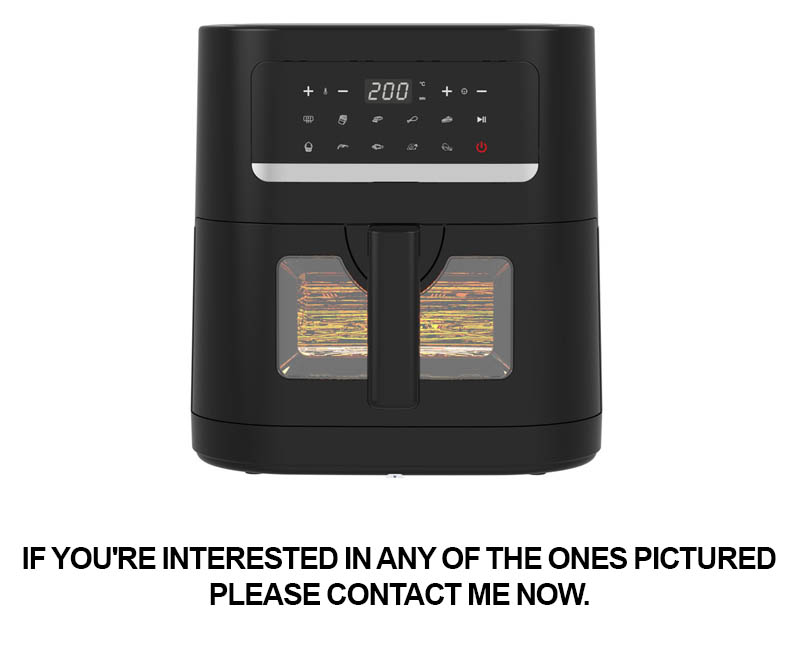
Navigating the complexities of certification can be daunting, but understanding the key steps involved in the turnkey UKCA certification process for the EU market can make the journey smoother. Here’s a detailed breakdown of what you need to know:
Assessment of Compliance RequirementsUnderstanding the specific regulations that apply to your kitchen appliance products is crucial. This step involves a thorough assessment of your product’s compliance with the UKCA marking requirements, which encompass both technical and regulatory aspects.
Development of Technical DocumentationTechnical documentation is the backbone of the certification process. This includes detailed technical files that demonstrate how your product meets the necessary standards. It covers design, materials, components, and manufacturing processes, ensuring that every aspect of your appliance aligns with UKCA regulations.
Product TestingA critical component of UKCA certification is the testing of your kitchen appliance. This is carried out by an approved body to verify that your product meets the required safety, health, and environmental protection standards. The tests can range from electrical safety to energy efficiency, material compatibility, and user interface.
Hiring an Expert Certification BodyOpting for a turnkey solution involves selecting a certification body that can guide you through the entire process. This body should be well-versed in UKCA certification and have a strong track record in kitchen appliance assessments. They will help ensure that your product meets all necessary standards and prepare all the required documentation.
Submission of Documentation and ApplicationOnce your product has been tested and deemed compliant, the next step is to submit your application along with all the necessary documentation to the relevant regulatory authority. This is typically done online, and the process involves filling out detailed forms that provide information about your product and its compliance with the UKCA requirements.
Review and ApprovalThe regulatory authority will review your application and the submitted documentation. They will assess whether all the required information is present and whether the product meets the UKCA standards. If everything is in order, they will grant the certification, which is valid for a specified period.
Marking Your Product with UKCA MarkUpon receiving the certification, you are required to mark your product with the UKCA mark. This mark is a clear indication to consumers and distributors that your product has undergone the necessary assessments and complies with UK and EU regulations. The marking must be visible, legible, and indelible.
Ongoing Compliance and MonitoringCertification is not a one-time event. It’s important to maintain ongoing compliance with UKCA requirements. This involves regular audits, updates to your technical documentation, and any necessary modifications to your product or production process to ensure continued compliance.
Training and Continuous ImprovementA turnkey solution often includes training for your staff on the UKCA certification process and the requirements for maintaining compliance. This training ensures that your team understands the importance of adhering to the standards and can implement continuous improvement measures.
Addressing Non-Compliance IssuesIf, at any point, your product is found to be non-compliant with UKCA standards, the certification body will guide you on the necessary corrective actions. This might involve further testing, modifications to the product, or additional documentation.
Post-Certification SupportAfter obtaining the certification, the turnkey service provider may offer ongoing support to ensure that your product continues to meet the required standards. This support can include regular updates on any changes to the UKCA regulations and assistance with any challenges that may arise.

Navigating the complexities of certification can be daunting, but a turnkey service for UKCA certification offers a streamlined path to market. Here are some of the key benefits that come with opting for a turnkey service:
Efficiency in Compliance DocumentationTurnkey services are designed to manage the entire certification process, from gathering all necessary documentation to ensuring that it meets EU standards. This eliminates the need for manufacturers to navigate through a maze of paperwork, saving both time and resources.
Expert Guidance Through RegulationsThe EU has a stringent set of regulations for product safety and compliance. A turnkey service provides expert guidance, ensuring that every aspect of your kitchen appliances adheres to these regulations, reducing the risk of non-compliance issues.
Cost-Effective SolutionsWhile certification can be an investment, a turnkey service often offers cost-effective solutions by bundling services and expertise into a single package. This can be more affordable than piecing together services from multiple providers.
Reduced Risk of DelaysThe certification process can be lengthy and prone to delays. A turnkey service ensures a more efficient process, minimizing the time it takes to get your products to market, which is crucial for staying competitive.
Customized Support for Your ProductsEach kitchen appliance brand and product line has unique requirements. A turnkey service offers customized support, tailoring the certification process to the specific needs of your products, ensuring a more precise and effective outcome.
Comprehensive Quality AssuranceTurnkey services typically include thorough quality assurance checks, ensuring that your products not only meet UKCA standards but also stand up to the rigorous testing required for the EU market.
Expertise in International RegulationsNavigating international regulations can be challenging. A turnkey service brings together a team of experts who are well-versed in both UKCA and EU regulations, providing peace of mind that all legal requirements are met.
Enhanced Brand ReputationHaving UKCA certification can significantly enhance your brand’s reputation. A turnkey service helps in maintaining this high standard, ensuring that your products are perceived as reliable and compliant, which can be a major selling point in the EU market.
Peace of Mind for Business OperationsWhen you outsource the certification process to a turnkey service, you gain peace of mind knowing that your business operations are not disrupted. The service handles the complexities, allowing you to focus on what you do best—producing quality kitchen appliances.
Post-Certification SupportThe journey doesn’t end with certification. A turnkey service often provides ongoing support, including monitoring for any changes in regulations and assisting with any necessary updates to maintain compliance.
Networking OpportunitiesTurnkey services often have extensive networks within the industry, which can provide additional opportunities for collaboration, partnerships, and market insights that can benefit your business.
Risk MitigationWith a turnkey service, the risk of non-compliance and potential fines is significantly reduced. The service ensures that all legal and safety standards are met, protecting your business from legal and financial repercussions.
ScalabilityAs your business grows, so does the need for scalability in your certification process. A turnkey service can easily adapt to your expanding product line and market demands, ensuring a seamless expansion into new markets.
By choosing a turnkey service for your UKCA certification, you’re essentially investing in a comprehensive solution that handles all the complexities of compliance, allowing you to focus on what you do best—innovating and delivering top-quality kitchen appliances to the EU market.

Understanding the evolving landscape of kitchen appliance technology is crucial for any brand aiming to stay competitive in the market. Here’s a delve into some key industry trends that are shaping the future of the sector:
The rise of smart appliances has been a game-changer. These devices, equipped with advanced technology, offer users convenience and efficiency, from voice-controlled ovens to refrigerators that can order groceries. Brands that integrate smart features into their products are tapping into a growing consumer demand for connectivity and automation.
Energy efficiency remains a cornerstone of the industry. As environmental concerns escalate, consumers are increasingly seeking appliances that not only perform well but also minimize their carbon footprint. This trend is pushing manufacturers to innovate in materials, design, and functionality to produce more sustainable and energy-saving products.
Customization is becoming more prevalent. With the ability to tailor appliances to individual preferences and kitchen layouts, manufacturers are offering consumers a more personalized experience. From color options to unique functionalities, this shift is allowing customers to choose products that align with their lifestyle and aesthetic.
Health and wellness are at the forefront. There’s a growing interest in appliances that promote healthier living, such as air purifiers for kitchen ventilation systems or steam ovens that reduce the need for oil. Brands that can cater to these health-conscious consumers are likely to see a boost in sales.
Sustainability is not just about energy efficiency; it’s also about the lifecycle of the product. Recyclable materials, longer-lasting components, and the ability to repair rather than replace are becoming key selling points. Companies that embrace a circular economy approach are likely to gain a competitive edge.
The integration of appliances with home automation systems is another trend. As smart homes become more common, there’s a synergy between kitchen appliances and overall home management systems. This integration allows for seamless control and operation, enhancing the user experience and adding convenience.
The rise of online shopping has also influenced the appliance industry. Consumers are more likely to research and purchase kitchen appliances online, which means brands need to focus on digital marketing, user-friendly websites, and reliable customer service. The ability to offer a seamless online shopping experience is becoming a differentiator.
Lastly, the emphasis on user safety and security cannot be overstated. As appliances become more connected, ensuring that they are secure from cyber threats and that they meet stringent safety standards is essential. Brands that prioritize these aspects are likely to build trust with their customers.
By staying abreast of these trends, kitchen appliance manufacturers can anticipate market demands, innovate their products, and ultimately, create a more compelling offering for consumers. Whether it’s through smart technology, sustainability, or personalized experiences, the industry is on the move, and those who adapt will be well-positioned for success.
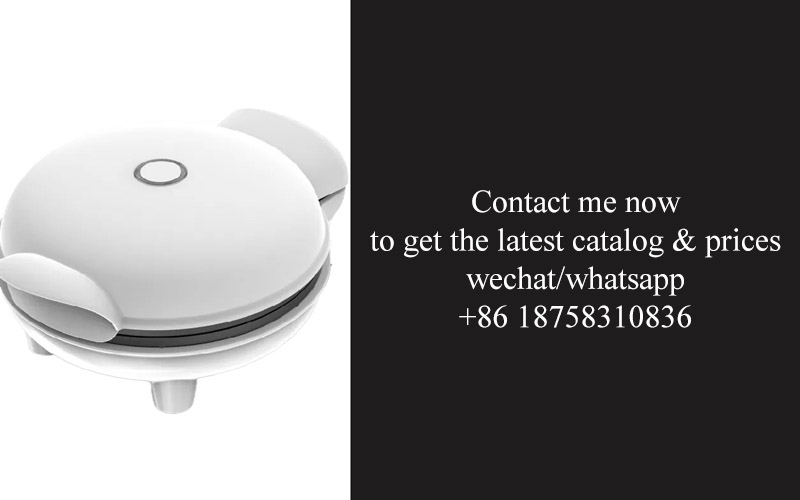
In the realm of kitchen appliance manufacturing, several brands have successfully navigated the complexities of UKCA certification to tap into the lucrative EU market. Here are some compelling success stories that highlight the journey and achievements of these companies:
The story of Appliance Innovators began with a commitment to quality and a vision to expand their product line across Europe. They faced the challenge of understanding the intricacies of UKCA certification but sought out a specialized turnkey service that streamlined the process. With meticulous planning and expert guidance, they successfully obtained their UKCA mark, enabling them to launch their products in the EU with ease.
EcoGadgets, a brand known for its eco-friendly kitchen appliances, encountered a significant hurdle when they decided to enter the EU market. The UKCA certification process seemed daunting, but they partnered with a reputable certification body that offered a comprehensive turnkey service. By following a structured approach, they were able to navigate the certification maze and gain access to a broader customer base in Europe.
Global Kitchenware, a company specializing in high-end kitchenware, wanted to maintain their brand’s prestige while expanding into the EU. They chose a turnkey UKCA certification service that not only ensured compliance but also provided valuable insights into the European market. This strategic move allowed them to introduce their premium products to discerning consumers across the continent.
The journey of SmartAppliances was marked by rapid growth and the need to quickly adapt to new regulatory standards. They recognized the importance of UKCA certification for market entry but were short on time. A turnkey service was their solution, providing a fast-track path to certification. This expedited process allowed them to maintain their aggressive growth trajectory without compromising on quality or compliance.
KitchenTech, a startup with innovative smart kitchen appliances, had to navigate the complexities of certification while also managing limited resources. They partnered with a turnkey service that not only handled the technical aspects of UKCA certification but also offered strategic advice on market entry. This support was crucial in helping them secure their place in the competitive European market.
The tale of Classic Kitchens, a brand with a rich heritage, involved a delicate balance between preserving tradition and embracing modern regulations. Their turnkey UKCA certification service not only ensured that their products met the necessary standards but also helped them understand the evolving preferences of European consumers. This dual focus allowed them to maintain their legacy while appealing to a new generation of buyers.
Each of these case studies demonstrates how a turnkey UKCA certification service can be a game-changer for kitchen appliance manufacturers looking to enter the EU market. From streamlining the certification process to providing strategic guidance, these services have been instrumental in turning compliance into a competitive advantage. By learning from these success stories, other companies can confidently embark on their own journey to European market success.
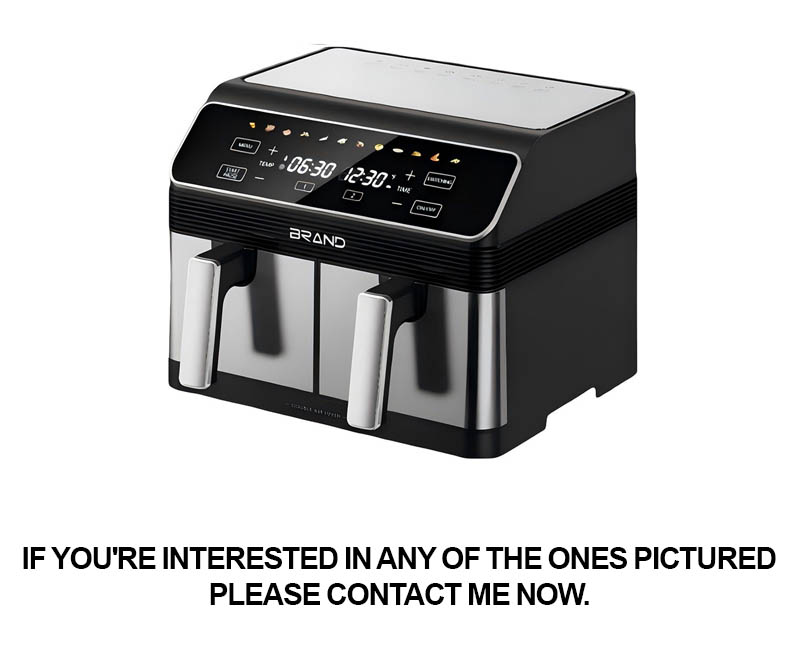
In the ever-evolving landscape of kitchen appliance manufacturing, data and analytics have become indispensable tools for staying competitive and informed. The role of data and analytics in the industry is multifaceted, influencing everything from product development to market strategy.
Understanding Consumer BehaviorData analytics enables manufacturers to delve into consumer preferences, usage patterns, and buying habits. By analyzing this information, companies can tailor their products to meet the needs and desires of their target market more effectively. For instance, insights into which features are most valued can lead to the creation of innovative appliances that resonate with consumers.
Predicting Market TrendsThe ability to predict market trends is crucial for any business. Data analytics can forecast shifts in consumer preferences, technological advancements, and regulatory changes. This foresight allows manufacturers to proactively adapt their product lines and operations, ensuring they remain relevant and compliant with evolving standards.
Optimizing Supply Chain OperationsEfficient supply chain management is vital for kitchen appliance companies. Data analytics can help streamline operations by identifying bottlenecks, reducing waste, and improving inventory management. This not only cuts costs but also enhances the overall speed and reliability of the supply chain.
Enhancing Product QualityData-driven insights can significantly improve product quality. By monitoring performance metrics and customer feedback, manufacturers can identify areas for improvement and make informed decisions about design changes or component upgrades. This iterative process ensures that products are not only functional but also durable and user-friendly.
Streamlining Regulatory ComplianceRegulatory compliance is a critical concern for kitchen appliance manufacturers. Data analytics can help track changes in safety standards and ensure that products meet all necessary requirements. This proactive approach minimizes the risk of recalls and legal issues, maintaining the company’s reputation and customer trust.
Personalizing Marketing StrategiesMarketing efforts can be vastly improved through data analytics. By segmenting the market based on consumer data, companies can craft personalized marketing campaigns that resonate with specific customer groups. This targeted approach can lead to higher conversion rates and increased brand loyalty.
Reducing Environmental ImpactWith growing environmental concerns, data analytics can help kitchen appliance manufacturers reduce their carbon footprint. By analyzing energy consumption and material usage, companies can identify opportunities to make their products more sustainable and eco-friendly.
Innovation Through CollaborationData analytics can also facilitate collaboration between different departments within a company. By sharing insights and data, teams can work together to drive innovation and develop new products that address unmet needs or market gaps.
Risk ManagementData analytics plays a crucial role in risk management. By identifying potential risks, such as supply chain disruptions or market volatility, companies can develop contingency plans to mitigate these threats. This proactive stance can safeguard the business against unforeseen challenges.
The Future of Kitchen AppliancesAs the industry continues to evolve, the role of data and analytics will only become more significant. By leveraging these tools, kitchen appliance manufacturers can stay ahead of the curve, delivering products that not only meet consumer expectations but also contribute to a more sustainable future.
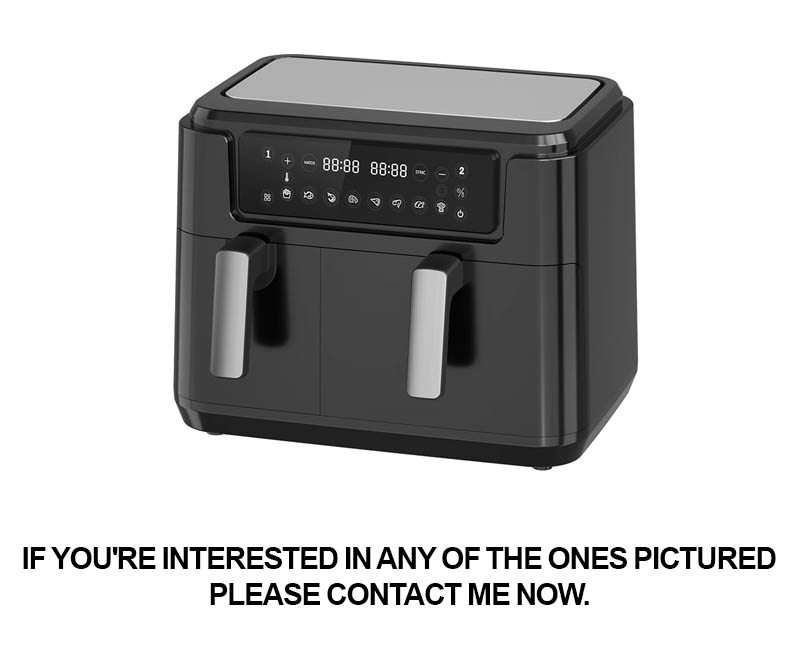
Navigating the complexities of the EU market requires a keen eye for detail and a strategic approach. One such approach involves leveraging data and analytics to inform decision-making. Here’s a deeper look into how data and analytics play a pivotal role in the kitchen appliance industry:
Market Insights: Data analytics allows companies to delve into consumer behavior, preferences, and trends within the EU market. By analyzing sales data, customer feedback, and market research reports, appliance manufacturers can tailor their products and marketing strategies to meet the specific needs of European consumers.
Competitive Analysis: Data-driven insights can help identify competitors’ strengths and weaknesses, enabling kitchen appliance brands to differentiate themselves in a crowded market. By tracking competitor pricing, product features, and market share, companies can make informed decisions about their own product development and marketing strategies.
Regulatory Compliance: Staying compliant with EU regulations is crucial for market entry. Data analytics can assist in monitoring and interpreting regulatory changes, ensuring that products meet the necessary safety, environmental, and performance standards. This proactive approach minimizes the risk of costly non-compliance issues.
Supply Chain Optimization: The kitchen appliance industry relies on a complex supply chain. Data analytics can help optimize this network by identifying inefficiencies, predicting demand, and streamlining logistics. This not only reduces costs but also improves overall operational efficiency.
Product Development: By analyzing consumer feedback and market trends, appliance manufacturers can identify opportunities for innovation. Data-driven insights can guide the development of new features, functionalities, and even entirely new product lines that resonate with the European market.
Sales and Distribution: Data analytics can provide valuable insights into sales performance, helping to refine distribution strategies. By understanding which channels are most effective, companies can allocate resources more efficiently, ensuring their products are accessible to the widest possible audience.
Customer Segmentation: Segmenting the market based on demographics, psychographics, and buying behavior allows for more targeted marketing efforts. Data analytics enables companies to create personalized marketing campaigns that resonate with specific customer groups, leading to higher conversion rates.
Predictive Analytics: Advanced predictive analytics can forecast future market trends, consumer preferences, and even economic shifts. This foresight allows kitchen appliance manufacturers to stay ahead of the curve, positioning them to capitalize on emerging opportunities before competitors.
Performance Monitoring: Continuous monitoring of key performance indicators (KPIs) through data analytics ensures that companies are on track to meet their business objectives. This real-time feedback allows for quick adjustments to strategies and operations when necessary.
Risk Management: Data analytics can help identify potential risks, such as supply chain disruptions or product recalls, and provide insights into how to mitigate them. By understanding the risks and their potential impact, companies can make informed decisions to protect their brand and bottom line.
In conclusion, the role of data and analytics in the kitchen appliance industry is multifaceted. From informing strategic decisions to optimizing operations and enhancing customer experiences, data-driven insights are a cornerstone of success in navigating the dynamic and competitive EU market.
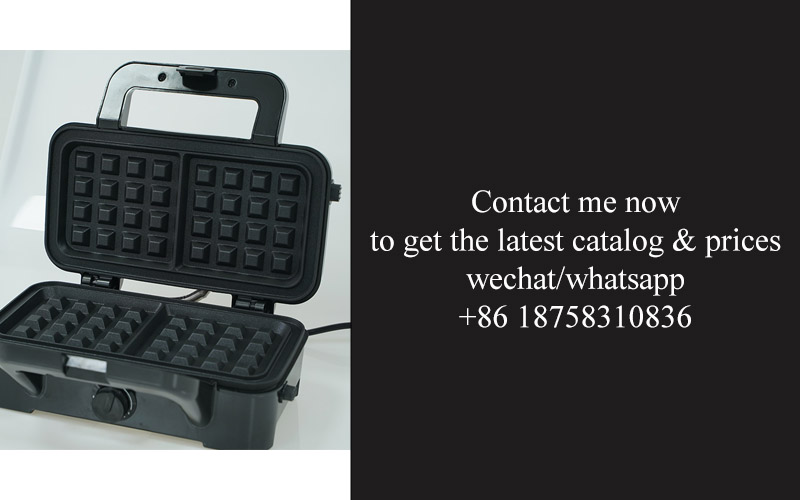
The European market presents a tantalizing opportunity for kitchen appliance manufacturers, but navigating its complex regulatory landscape can be daunting. As we reach the end of this journey, it’s crucial to understand that the path to European success is paved with strategic decisions, market insights, and a clear understanding of the landscape. Let’s reflect on the key takeaways from our exploration of UKCA certification and the wider European market:
Understanding the intricacies of the UKCA certification process is pivotal. It’s not just a mark of compliance; it’s a testament to a brand’s commitment to safety, quality, and adherence to stringent EU standards. This certification is more than just a legal requirement; it’s a trust signal to European consumers that your products meet the highest quality standards.
In a landscape where competition is fierce, the role of data and analytics cannot be overstated. Leveraging data-driven insights allows companies to tailor their products and marketing strategies to meet the specific demands of the European market. By understanding consumer preferences, technological advancements, and market trends, businesses can position themselves ahead of the curve.
Industry experts have offered invaluable perspectives on the importance of UKCA certification and its impact on market entry. They emphasize that it’s not just about compliance but about the credibility and acceptance your brand gains in the European market. Their insights underscore the need for a strategic approach that combines regulatory compliance with a deep understanding of the European consumer.
Case studies of successful companies that have navigated the UKCA certification process and thrived in the European market are not just stories of triumph; they are templates for success. These stories show that with the right strategy, thorough preparation, and a willingness to adapt, even the most complex regulatory hurdles can be overcome.
The benefits of a turnkey service are clear. From simplifying the certification process to providing expert guidance and support, these services alleviate the burden of navigating complex regulations and enable manufacturers to focus on what they do best—designing and producing high-quality kitchen appliances.
As we reflect on the journey, it becomes apparent that the path to European success is multifaceted. It involves understanding the nuances of the UKCA certification, harnessing the power of data and analytics, and learning from the experiences of those who have successfully navigated the market.
In conclusion, the path to European success in the kitchen appliance industry is not a straight line, but a dynamic journey that requires agility, foresight, and a commitment to excellence. It’s about recognizing that the European market is not just another sales channel but a marketplace with unique cultural nuances, regulatory frameworks, and consumer expectations. By embracing these challenges with a well-informed strategy and a resilient mindset, manufacturers can turn the complex process of UKCA certification into a gateway to a prosperous and sustainable future in Europe.